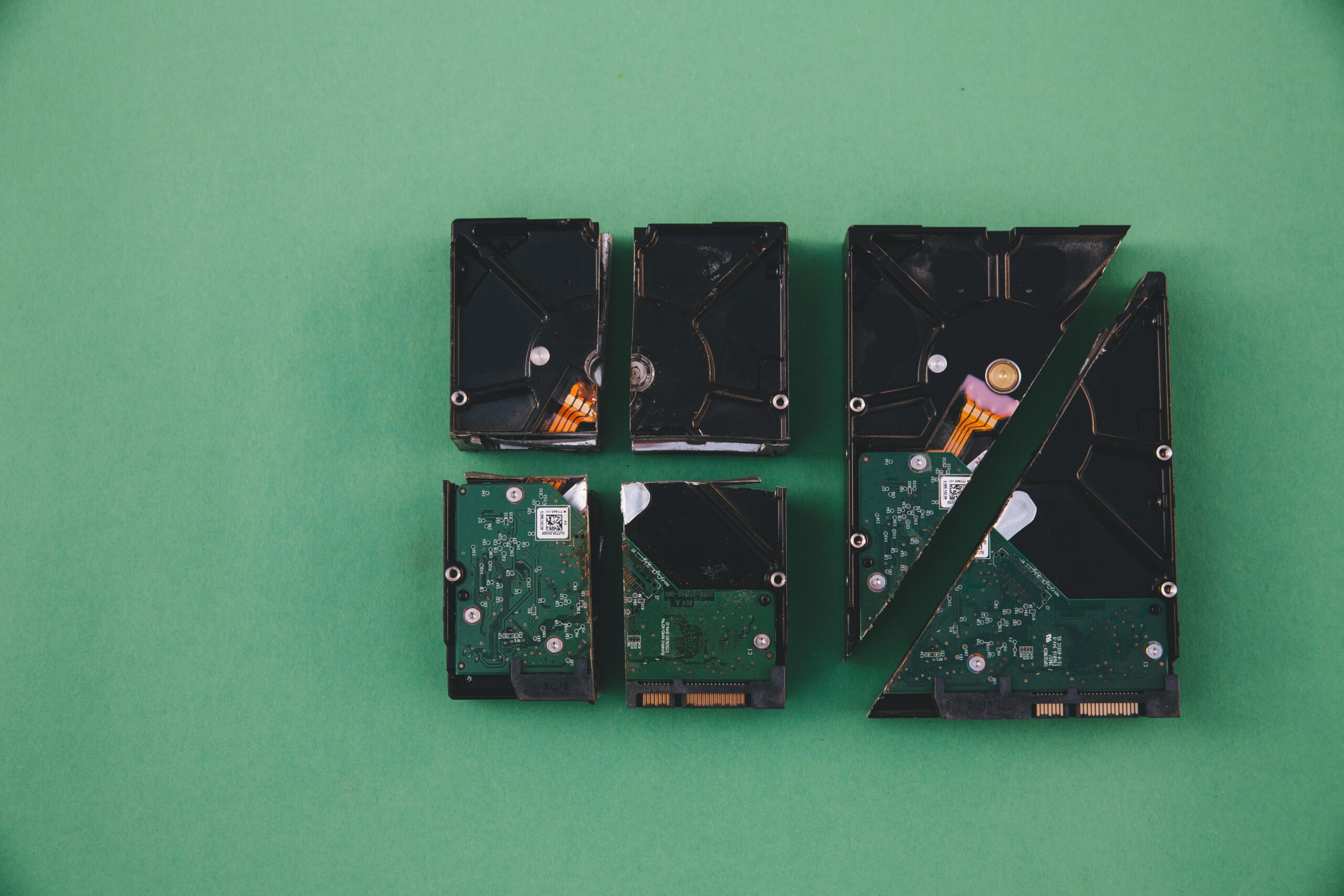Is your Windows 11 experience plagued by frustrating lag in file operations? You’re not alone! Many users are facing slowdowns that can disrupt productivity and create a sense of urgency. In this article, we will explore the common causes of this issue and present effective solutions to help you tackle those pesky slowdowns head-on! Whether it’s sluggish file transfers, unresponsive folders, or delayed search results, we’ll show you how to regain control over your system’s performance.
Windows 11 lag in file operations can stem from a variety of factors, including insufficient system resources, outdated drivers, and even background applications hogging your bandwidth. Have you noticed that your computer seems to take forever to copy or move files? This can be incredibly annoying, especially when you’re in the middle of an important task. Luckily, there are several strategies you can employ to boost your file operation speeds and enhance your overall computing experience.
Furthermore, understanding the underlying reasons for these slowdowns is crucial. Could it be that your hard drive is failing, or perhaps your Windows updates are overdue? By identifying the root causes, you can implement the right fixes and optimize your system’s performance. In the following sections, we will dive deeper into practical tips and tricks to help you resolve Windows 11 lag in file operations effectively. So stick around, and let’s get your PC running like new again!
Top 7 Causes of Windows 11 File Operation Lag: Uncover Hidden Performance Killers!

Windows 11 has bring a fresh look and new features, but many users still experience annoying lag during file operations. It’s like you click to open a folder and it feels like it takes forever. Understanding the top causes of Windows 11 file operation lag is crucial for improving your overall experience. Let’s dive into some hidden performance killers that could be affecting your system and learn how to tackle these slowdowns effectively!
Outdated Drivers
One of the most common reasons for lag in file operations is outdated drivers. When drivers are not up to date, they can cause conflicts and slow down your system. Make sure you regularly check for updates, especially for your graphics and storage drivers. Sometimes, a quick update can make a world of difference.
Background Applications
Did you know that the applications running in the background could be hogging resources? Programs like cloud storage services, antivirus scans, and even browsers can slow down file operations. You can check your Task Manager to see which applications are using the most CPU and memory. Closing unnecessary programs can free up resources and help speed things up.
Disk Fragmentation
While Windows 11 is designed to minimize fragmentation, it still happens, especially if you’re using an older hard drive. Fragmentation can lead to longer access times as the system struggles to piece together files from different locations. Consider running a disk defragmentation tool if you’re using an HDD. However, SSDs don’t typically need defragmentation, and performing it can actually reduce their lifespan.
Insufficient RAM
If your computer does not have enough RAM, it can cause significant slowdowns during file operations. Windows 11 demands more memory than previous versions, and if you’re running multiple applications, you could be maxing out your RAM. Upgrading your RAM could prevent lag and improve overall performance.
Viruses and Malware
Security threats can be a hidden cause of lag. If your system is infected with malware, it might be using your computer’s resources without your knowledge. Run a full system scan with a trusted antivirus program regularly. Prevention is key here, so keeping your antivirus software up to date can make all the difference.
Hard Drive Health
The health of your hard drive is also important when it comes to performance. If your drive is failing or has bad sectors, it can lead to major slowdowns. Tools like CrystalDiskInfo can help you monitor the health of your hard drive. If you notice signs of failure, it’s wise to backup your data and consider replacing the drive.
Windows Settings
Sometimes, the settings in Windows 11 can contribute to lag. Features like Windows Search and indexing can take up resources. Disabling these features or adjusting the indexing options can improve file operation speed. You can find these settings in the Control Panel under “Indexing Options.”
Addressing the lag in file operations on Windows 11 can involve multiple steps and factors. By identifying the hidden performance killers, users can take action to ensure their systems run smoothly. Make sure your drivers are updated, close unnecessary background applications, and maintain your hard drive. Regularly scanning for viruses and checking your system’s RAM can also help. With these tips, you can tackle slowdowns effectively and enjoy a more responsive Windows 11 experience. Remember, a little maintenance goes a long way!
5 Proven Solutions to Fix Windows 11 Lag in File Operations: Boost Your PC’s Speed Today!

In today’s digital world, slow file operations on Windows 11 can be a frustrating experience. Users often find themselves waiting longer than necessary for files to open, save, or transfer, which can really take a toll on productivity. This article dives into five proven solutions to fix Windows 11 lag in file operations, helping you boost your PC’s speed today!
1. Update Your Windows 11 System
First thing you should do is ensure that your Windows 11 is updated to the latest version. Microsoft regularly releases updates that include performance improvements, bug fixes, and new features that can help alleviate lag. To check for updates, simply go to Settings > Windows Update, and click on Check for updates. Keeping your system updated is key to maintaining optimal performance.
2. Optimize Your Hard Drive
If your hard drive is cluttered, it can slow down your file operations significantly. You can optimize your hard drive by using the built-in Disk Cleanup tool. Here’s how:
- Press Windows + S to open the search bar.
- Type Disk Cleanup and hit enter.
- Select the drive you want to clean up, usually C:.
- Check the boxes for the file types you want to delete, like temporary files or system files.
- Click OK to start the cleanup.
Also, consider defragmenting your hard drive. Go to Settings > System > Storage, and then click on Optimize Drives. Fragmentation can lead to slower access times, so this step could be critical in tackling Windows 11 lag in file operations.
3. Disable Background Applications
Another common reason for slow file operations is too many applications running in the background. These programs consume system resources that could otherwise be used for file operations. To disable unnecessary background applications:
- Open Settings and go to Privacy > Background apps.
- Turn off apps that you don’t need running all the time.
You can also check your Task Manager (Ctrl + Shift + Esc) to see what’s consuming your CPU and memory. If something isn’t needed, you can end the task, which might help improve the speed of your PC.
4. Check for Malware or Viruses
Sometimes, lagging in file operations can be caused by malware or viruses. Running a full system scan can help identify and remove any malicious software. Use Windows Defender or any reputable third-party antivirus software. Here’s a quick guide:
- Open Windows Security.
- Click on Virus & threat protection.
- Select Quick scan or Scan options for a full scan.
Regularly scanning your PC not only helps with performance but also keeps your sensitive data safe.
5. Upgrade Your Hardware
If you’ve tried everything else and still experience Windows 11 lag in file operations, it might be time to consider hardware upgrades. Here are some options:
- Add More RAM: Increasing your RAM can significantly improve system speed, especially when multitasking.
- Switch to an SSD: If you’re still using a traditional hard drive, switching to a Solid State Drive (SSD) can dramatically enhance your system’s responsiveness and speed. SSDs have faster read and write speeds compared to HDDs.
Final Thoughts
Dealing with Windows 11 lag in file operations doesn’t have to be a headache. By following these five proven solutions, you can tackle slowdowns effectively and boost your PC’s speed today! Regular maintenance, updates, and hardware upgrades can keep your system running smoothly, ensuring that you get the most out of your digital experience. Don’t let lag slow you down; take action and enjoy a faster, more efficient Windows 11 experience!
Is Your Windows 11 Slowing Down? 6 Essential Tweaks to Optimize File Operations Now!

Is your Windows 11 slowing down? If you’re experiencing lag in file operations, you’re not alone. Many users find that their systems become sluggish over time, especially when dealing with large files or multiple tasks. This can be frustrating, but there are ways to tackle the slowdowns effectively. Here, we’ll explore six essential tweaks to optimize file operations now!
Check for Background Processes
One of the main reasons why Windows 11 can lag in file operations is that there are too many background processes running. You can check this by opening the Task Manager. Just right-click on the taskbar and select Task Manager. Once it’s open, look under the “Processes” tab to see what is consuming your system resources. Unnecessary applications or processes can be ended, freeing up valuable RAM and CPU usage.
Optimize Storage Space
Windows 11 requires adequate storage space to operate smoothly. If your hard drive or SSD is nearly full, it can slow down your file operations. You can optimize storage by deleting unused files and applications. Also, consider using the built-in Storage Sense feature. Go to Settings > System > Storage, and turn on Storage Sense to automatically free up space by removing temporary files and content from your Recycle Bin.
Update Your Drivers
Drivers are crucial for the optimal performance of your hardware. Outdated drivers can cause lag in file operations. Regularly check for updates for your graphics, network, and storage drivers. You can do this through Windows Update or by visiting the manufacturer’s website. Keeping your drivers updated helps ensure that your system can handle file operations efficiently without any hitches.
Disable Startup Programs
Many programs set themselves to run at startup, which can slow down your system from the get-go. To disable these, open Task Manager again, and go to the “Startup” tab. Here, you can see which programs are starting with Windows. Disabling unnecessary startup programs can significantly improve boot times and overall system performance.
Adjust Power Settings
Your power settings can also affect how your Windows 11 operates. If it’s set to a power-saving mode, it might limit performance to conserve energy. To change this, go to Settings > System > Power & battery. From here, you can select a performance plan that prioritizes speed over energy efficiency. This can lead to improved file operation speeds, especially during intensive tasks.
Run Disk Cleanup and Defragmentation
Running a disk cleanup and defragmenting your hard drive can also help with performance. Use the built-in Disk Cleanup tool by searching for it in the Start menu. This tool removes unneeded files, which can help free up space. If you’re using an HDD, running a defrag can organize fragmented data and enhance access speed. However, if you have an SSD, you should use the Optimize Drives tool instead, as defragmentation is not required for SSDs.
These tweaks are easy to implement and can lead to noticeable improvements in your Windows 11 experience. With just a few adjustments, you can tackle the lag in file operations effectively.
Keep your system running smoothly by regularly maintaining it. Whether it’s updating drivers, managing background processes, or optimizing storage, these small changes can make a big difference. Don’t let slowdowns hinder your productivity. Take charge today and enjoy a faster, more responsive Windows 11 experience!
The Ultimate Guide to Diagnosing Windows 11 File Lag: 8 Tools and Techniques You Need!

Experiencing file lag on Windows 11 can be super frustrating. If your computer is moving slower than a snail when you’re trying to open, save, or transfer files, you are not alone. Many users having similar issues. In this ultimate guide, we will explore eight essential tools and techniques that can help you diagnose and tackle Windows 11 lag in file operations effectively.
Understanding Windows 11 File Lag
First, it’s important to know what file lag is. File lag occurs when there’s a noticeable delay in file operations, like opening documents or transferring files from one location to another. This problem can stem from various factors, including software conflicts, hardware limitations, and system settings. It can be really annoying, especially when you are on a deadline.
Tools and Techniques for Diagnosing File Lag
Here’s a detailed look at some tools and techniques that can help you figure out what’s going wrong.
Task Manager: You can access Task Manager by pressing Ctrl + Shift + Esc. It shows you which processes are using the most resources. If a particular app is hogging all the memory, it could cause file lag.
Resource Monitor: This tool provides even more detail than Task Manager. You can find it by searching in the Start Menu. It helps you see disk activity and identify programs that are slowing down file operations.
Disk Cleanup: Over time, your system can become cluttered with temporary files and outdated data. Running Disk Cleanup can free up space and potentially improve performance. Just search for it in the Start Menu, select the drive you want to clean, and follow the prompts.
Windows Check Disk: Sometimes, file lag can be caused by corrupted sectors on your hard drive. Running the Check Disk utility can fix these issues. Open Command Prompt as an administrator and type in “chkdsk /f”. It will check for errors the next time you restart your computer.
Defragment and Optimize Drives: Fragmentation can slow down file access. Windows has a built-in utility for defragmenting hard drives. Search for “Defragment and Optimize Drives” in the Start Menu and run it on your drives.
Driver Updates: Outdated drivers can cause all sorts of issues, including file lag. Make sure to keep your drivers up to date. You can do this through Device Manager or by visiting the manufacturer’s website.
Malware Scan: Sometimes, malware can cause your system to slow down. Running a full system scan with Windows Defender or another trusted antivirus program can help identify and remove any threats.
System Restore: If file lag started recently, you might consider using System Restore to roll back to a previous state. This can undo any changes that may have caused the issue.
Additional Tips to Prevent File Lag
- Regularly update Windows to the latest version.
- Keep your files organized and delete unnecessary files.
- Consider upgrading your RAM if your system frequently lags.
In summary, Windows 11 lag in file operations can be tackled effectively with the right tools and techniques. By employing the strategies outlined here, you can diagnose the root causes of your file lag and take appropriate actions to resolve these issues. It’s all about keeping your system clean and updated. Don’t let slow file operations hinder your productivity. With a little bit of effort and the right tools, you can enjoy a smoother computing experience.
Why Is Windows 11 So Slow? 10 Expert Tips to Eliminate File Operation Delays for Good!

Windows 11 has been touted as a major upgrade over its predecessor, Windows 10. But many users in New York and beyond are finding themselves asking, “Why is Windows 11 so slow?” If you find yourself lagging in file operations, you’re not alone. The sluggishness can be frustrating, especially when you’re trying to get work done. This article will go over ten expert tips to eliminate file operation delays for good.
Understanding the Slowdowns
Before diving into solutions, it’s important to understand what causes Windows 11 to lag during file operations. The reasons could be many, from hardware limitations to software conflicts. Sometimes, it’s just a matter of too many background processes, or maybe your system is overloaded with applications that consume high amounts of memory.
Common Causes of Windows 11 Lag in File Operations
- Background Processes: Windows 11 runs multiple processes in the background that can slow down file operations.
- Insufficient RAM: If your system has less than 8GB of RAM, you may experience lags, especially when multitasking.
- Hard Drive Issues: A failing hard drive or using an HDD instead of an SSD can dramatically slow file access.
- Outdated Drivers: Drivers that aren’t updated can cause compatibility issues, leading to slow performance.
- Fragmentation: On traditional hard drives, fragmentation can cause slowed access to files.
10 Expert Tips to Tackle Slowdowns Effectively
Upgrade Your Hardware: If you’re using an older machine, consider upgrading your RAM or switching to an SSD. This can make a massive difference.
Limit Background Apps: Open Task Manager and close unnecessary applications running in the background. This frees up resources for file operations.
Adjust Visual Effects: Go to System Properties and adjust for best performance. This reduces the graphical load on your system.
Run Disk Cleanup: Use the built-in Disk Cleanup tool to remove unnecessary files and free up space.
Update Drivers: Regularly check for updates for all your drivers, especially for graphics and storage devices.
Disable Startup Programs: Many programs start automatically when your computer boots. Disable those you don’t need to improve startup time and overall performance.
Optimize Your Hard Drive: If you’re using an HDD, run a defragmentation tool. SSDs usually don’t require this, as they don’t have moving parts.
Check for Malware: Run a full system scan using reliable antivirus software to ensure there aren’t any malicious programs affecting performance.
Use Windows Troubleshooter: Built-in troubleshooters can automatically find and fix problems related to file operations and performance.
Reset Windows: If all else fails, consider resetting Windows to its default settings. This can wipe out any software issues that may be causing slowdowns.
Final Thoughts
Windows 11 lag in file operations can be a real pain, but it’s often solvable with some simple tweaks and maintenance. By understanding the root causes and applying these ten tips, you can significantly improve your experience. Whether you’re working from a digital license selling e-store or just managing personal files, keeping your system optimized is key to productivity. Don’t let slow file operations hold you back from achieving your goals. Take action today to get your Windows 11 running smoothly!
Conclusion
In conclusion, experiencing lag during file operations in Windows 11 can be frustrating, but understanding its causes and solutions can significantly improve your experience. We discussed how background processes, insufficient system resources, outdated drivers, and file indexing can contribute to this issue. By managing startup programs, updating drivers, disabling unnecessary features, and optimizing your system settings, you can enhance performance and reduce lag. Additionally, regular system maintenance, such as disk cleanup and defragmentation, plays a crucial role in keeping your system responsive. If problems persist, consider reaching out to Microsoft support or exploring community forums for tailored advice. Remember, a well-optimized system not only enhances productivity but also improves your overall computing experience. Take proactive steps today to ensure smooth file operations and enjoy the full potential of Windows 11.

